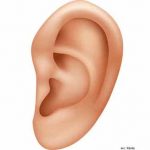BIOCOMPATIBILITY OF PLASTICS
09 October 2017
| The International Organization for Standardization (ISO) presents widely adopted medical device guidelines that are aimed with a keen focus towards risk management. Biocompatibility testing for these devices and device components is addressed by ISO standard 10993. | RESINATE 2017 |
| Well-defined material characterization is a fundamental requirement in biocompatibility assessment. This evaluation consists of chemical, mechanical, and thermal characterization elements. Material characterization is of particular importance for plastics because nominally similar grades of plastics can vary significantly in their material and chemical attributes. Plasticizers, stabilizers, and fillers added to plastics during manufacturing can affect their biocompatibility. Leaching studies must be performed on plastics with additives such as these to ensure that leachates from the plastics are non-toxic. The amount and type of additive will also affect the biocompatibility of the final plastic product. | ©2010, ©2017, Zeus Industrial Products |
| This is a post of a scientific or business information. The information given here is checked thoroughly by “Implant-Register”. However we can´t be responsible for the content. Contact the publisher, if you have questions. You may inform us about changes of the information to improve the Register. | |
Find NEWS and PUBLICATIONS here according to your interests or use the search box.









